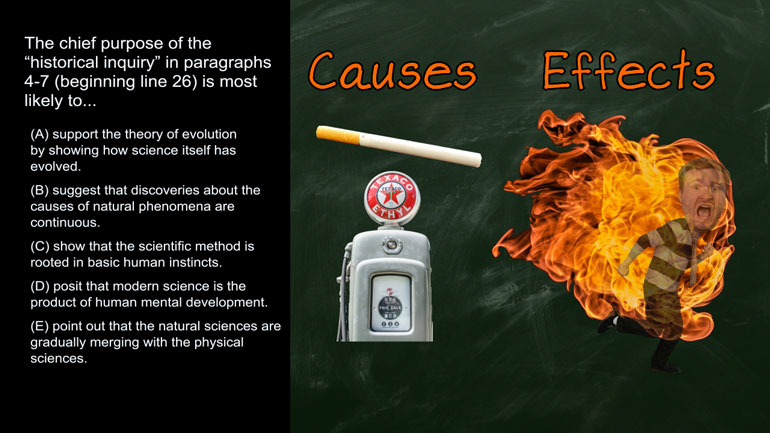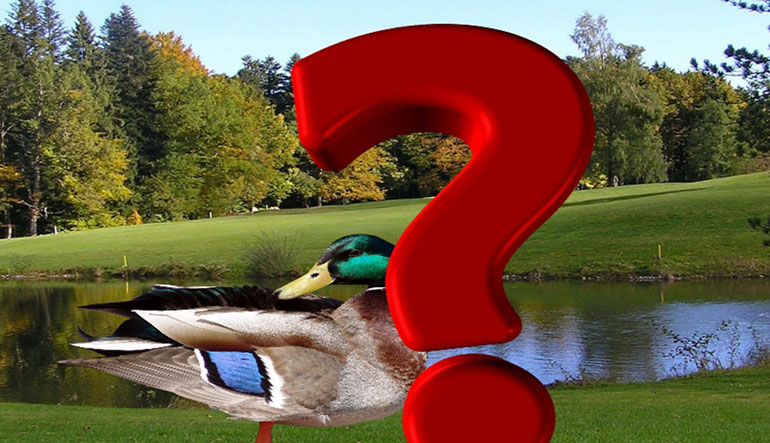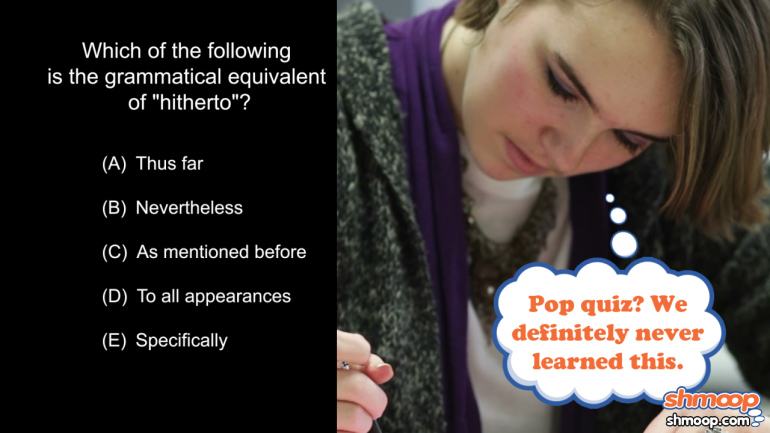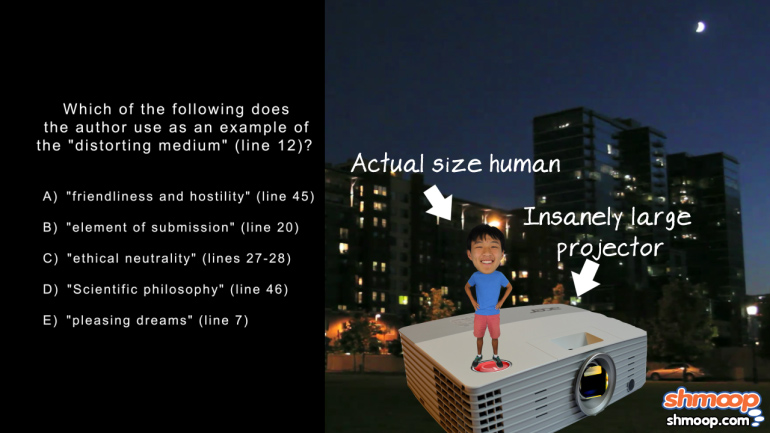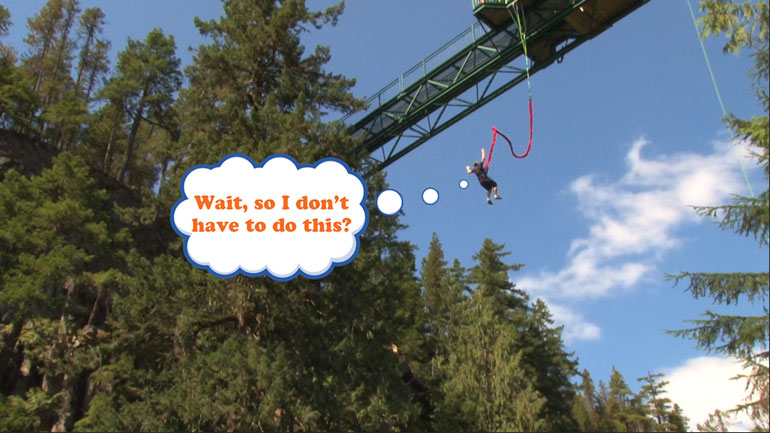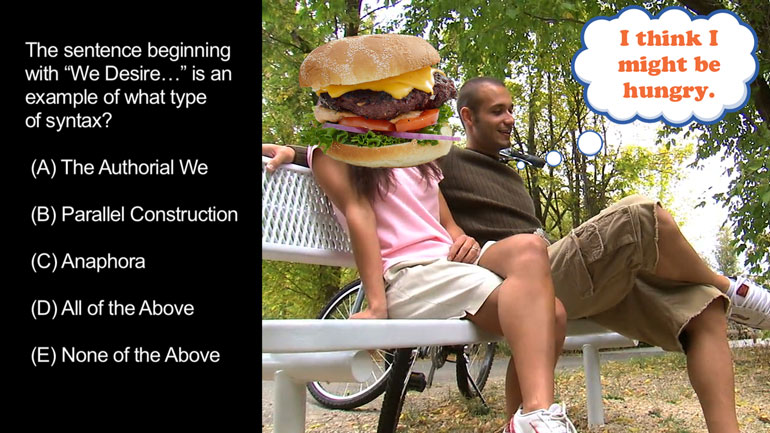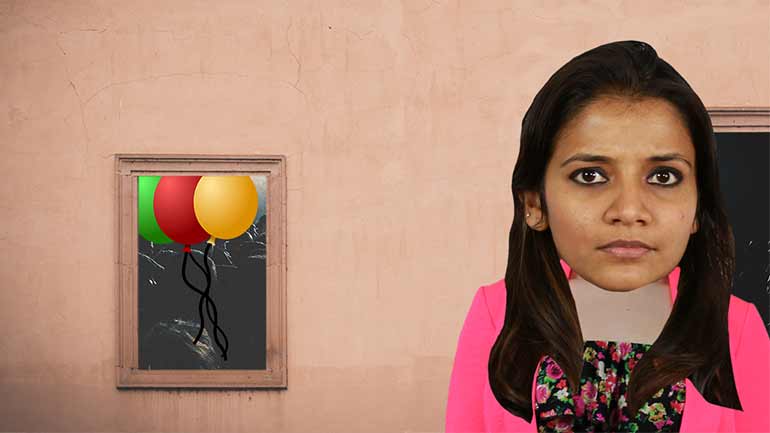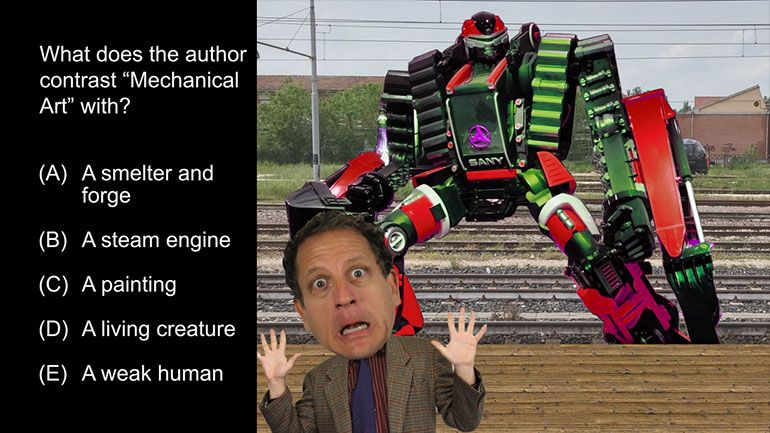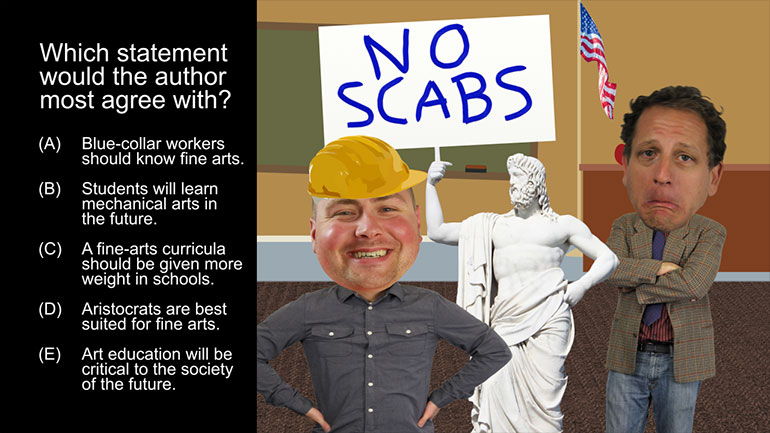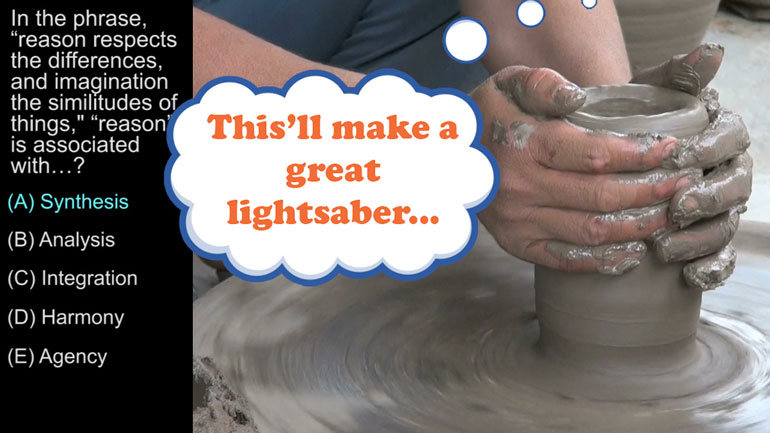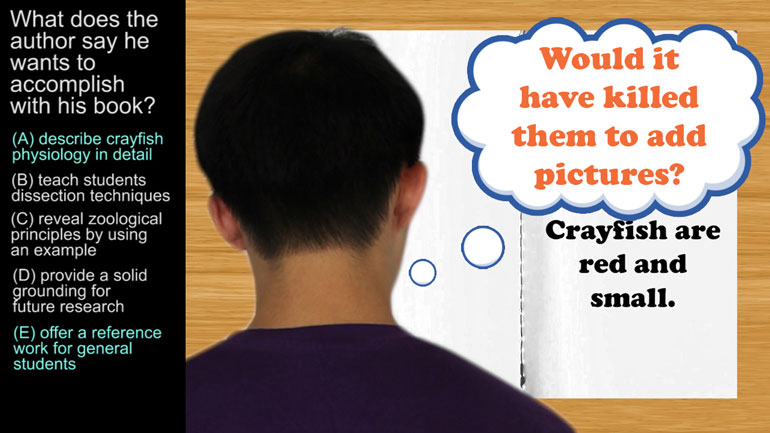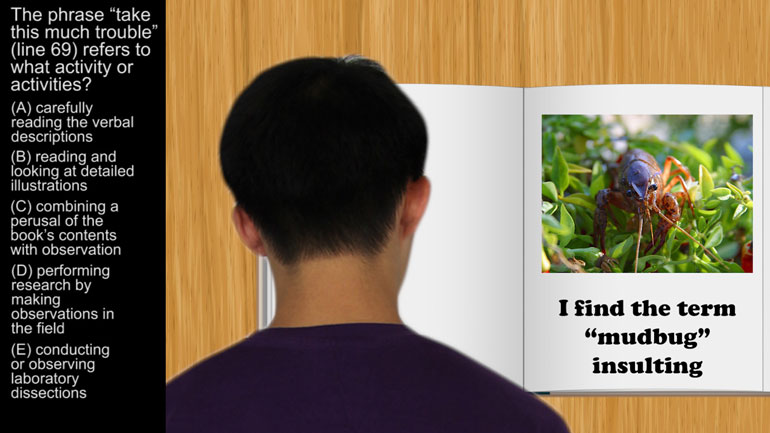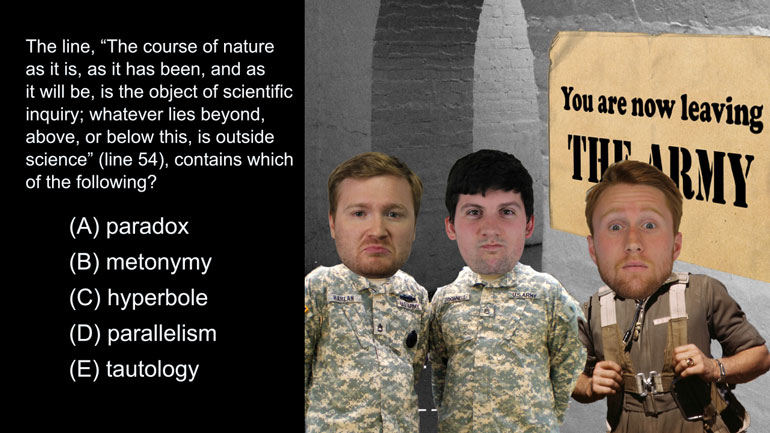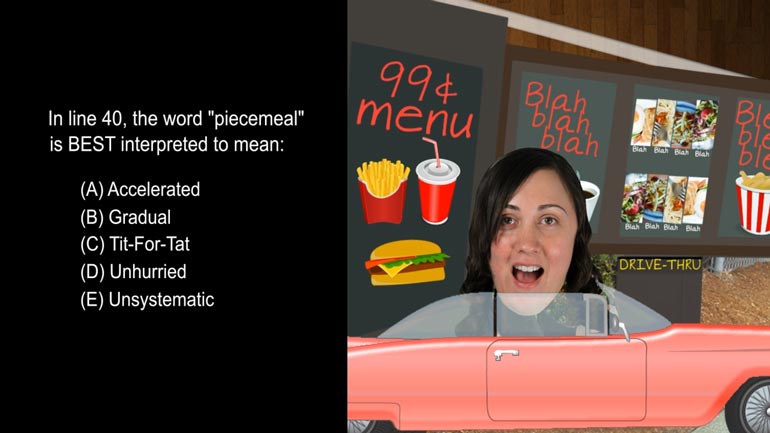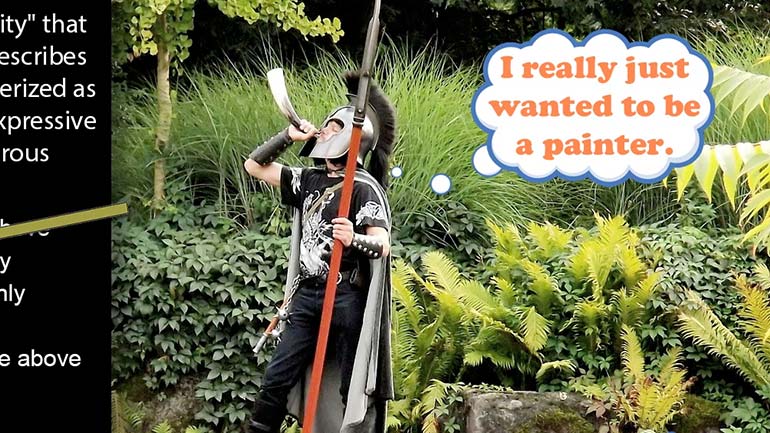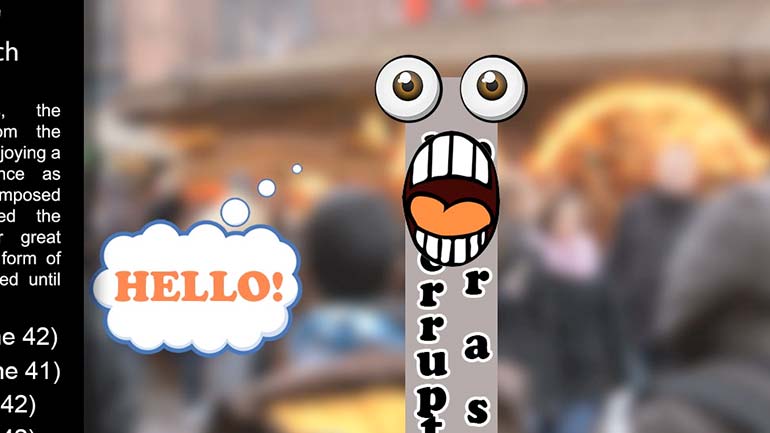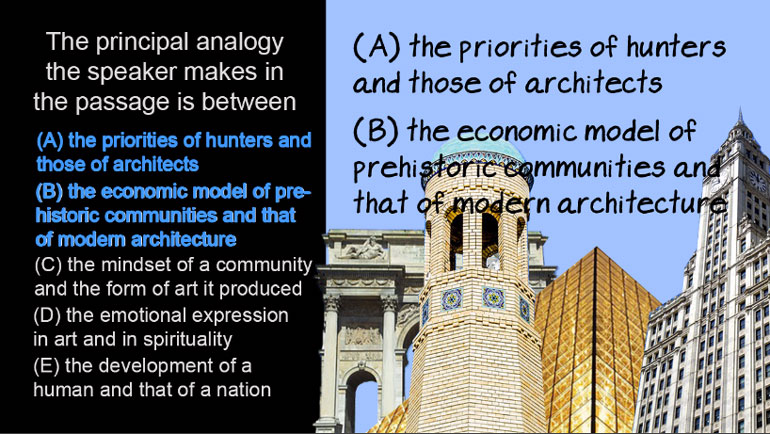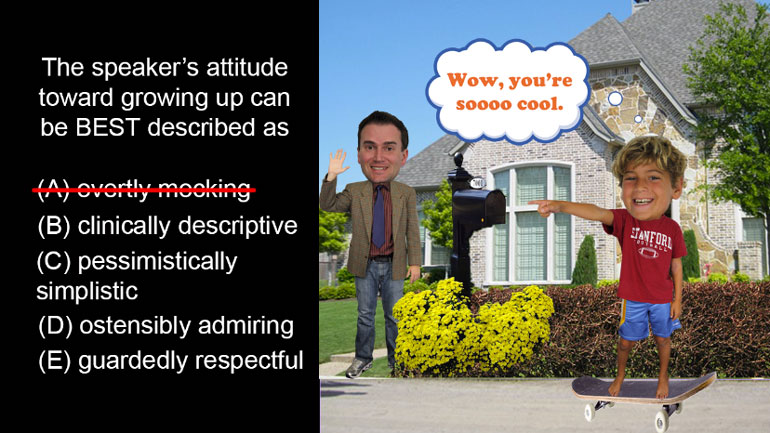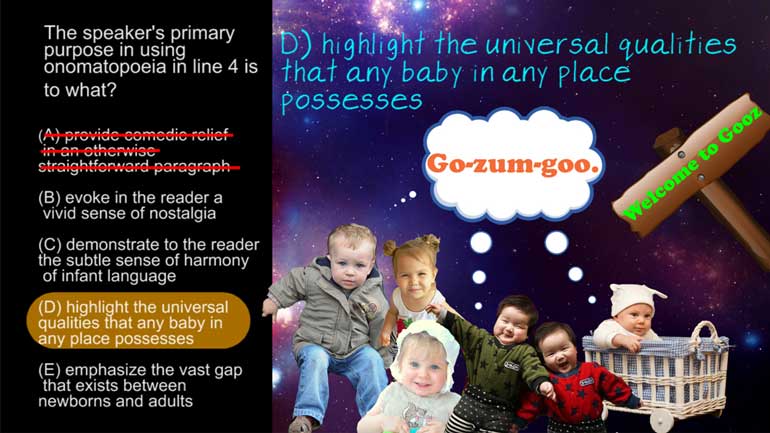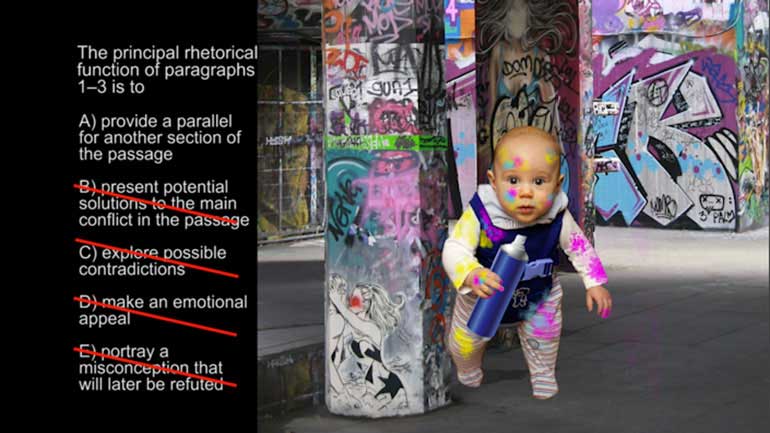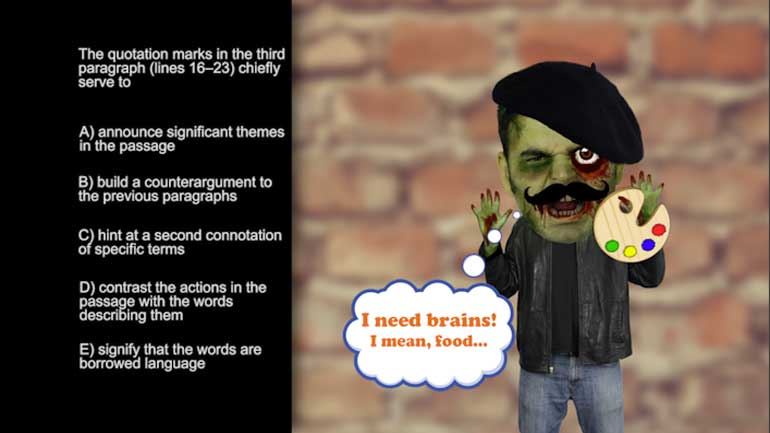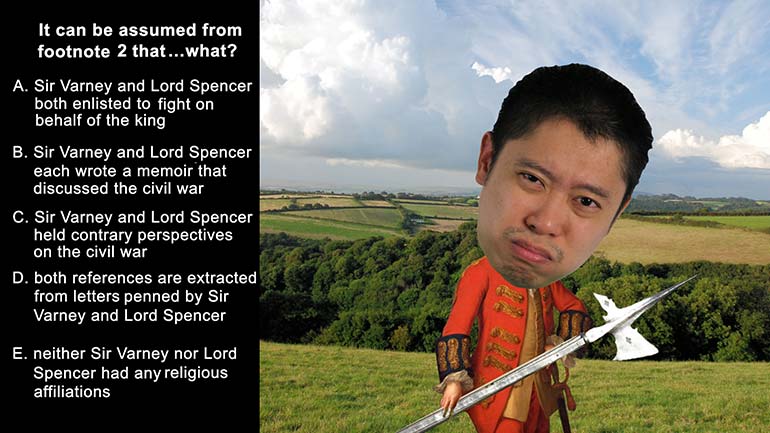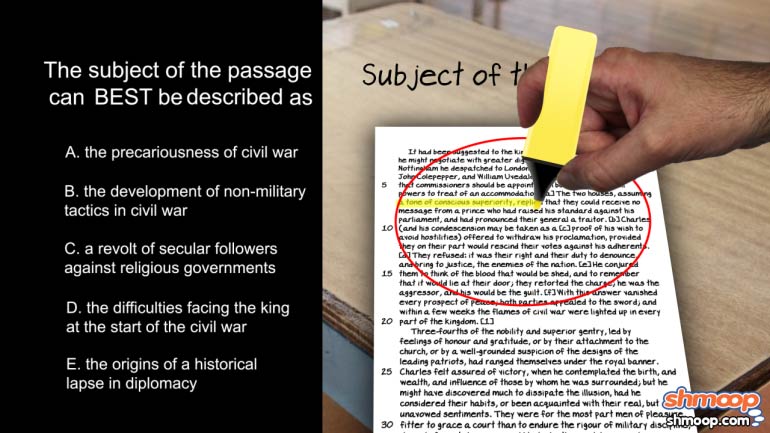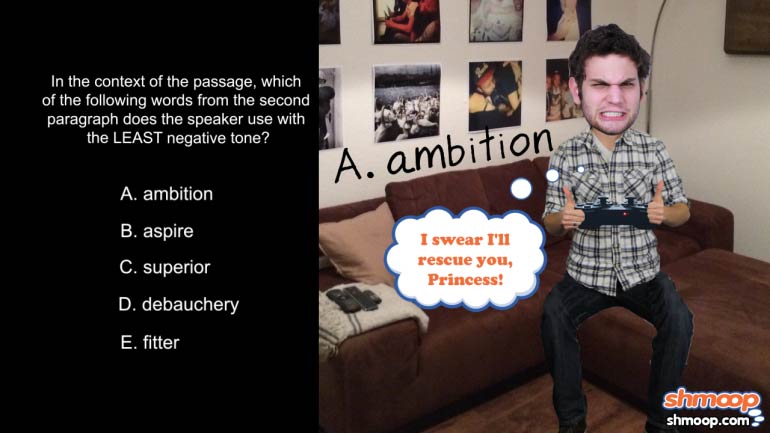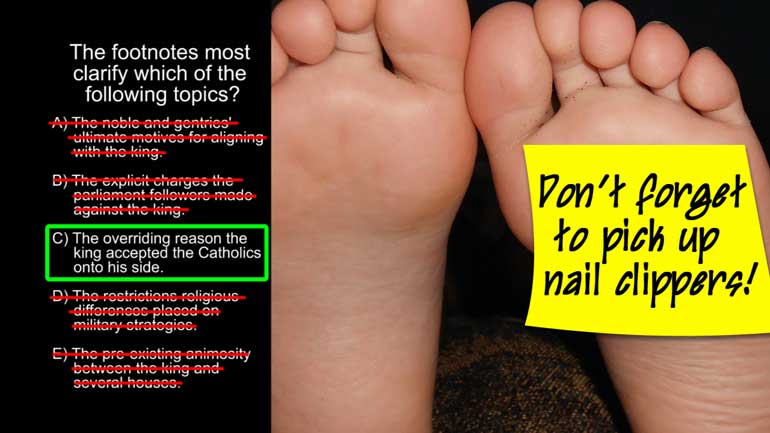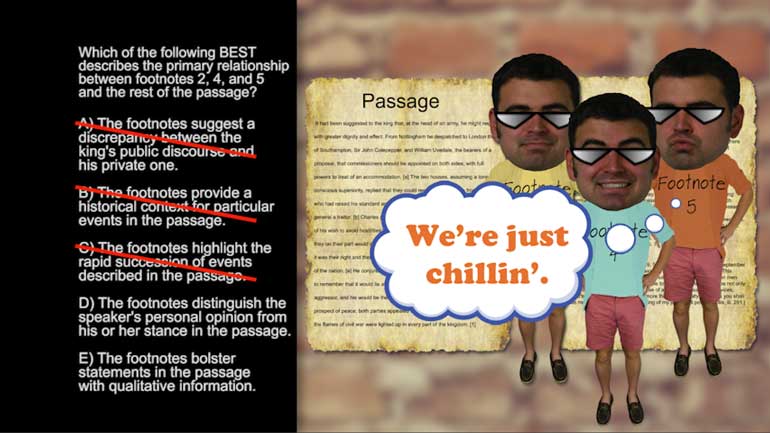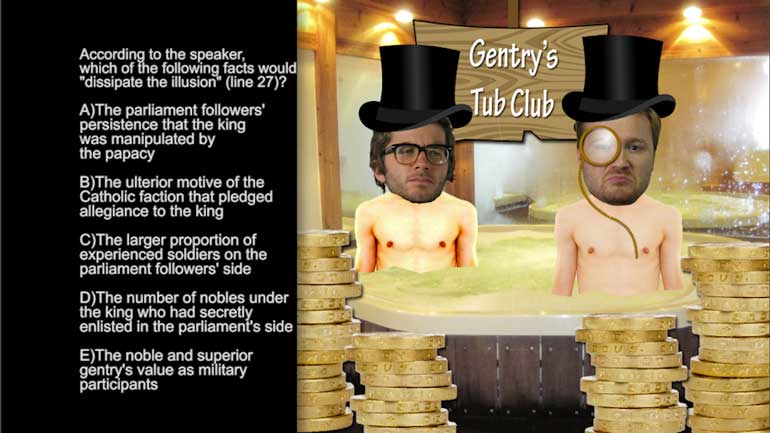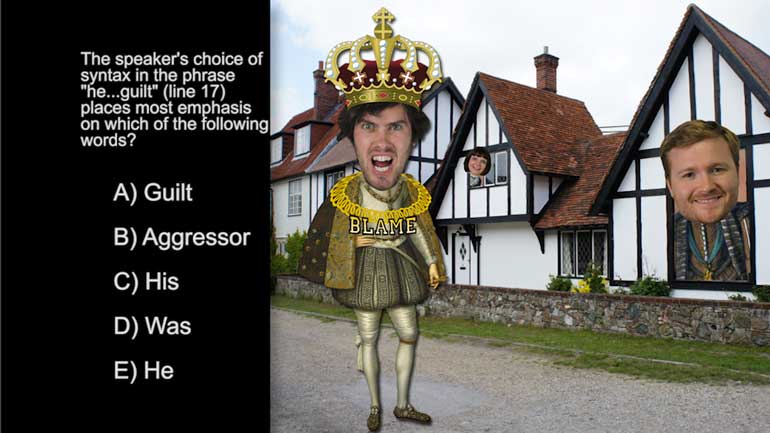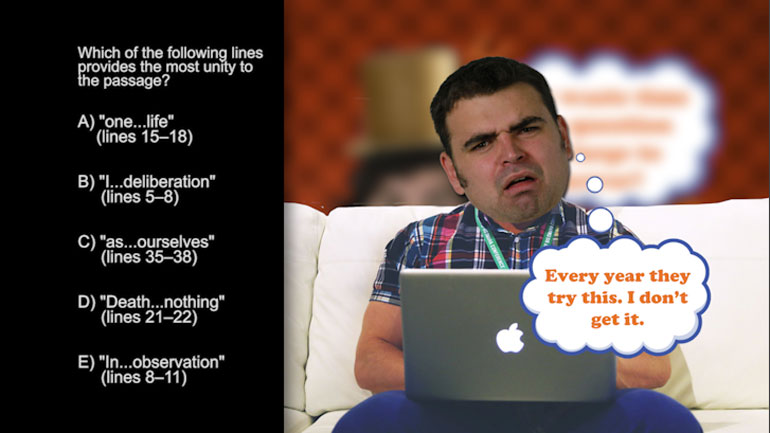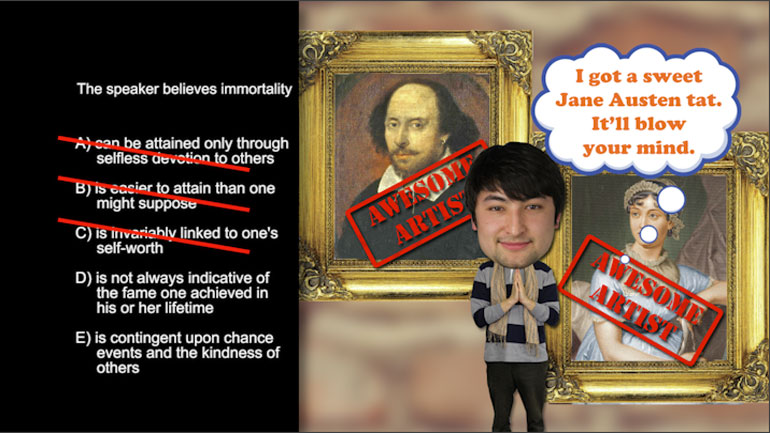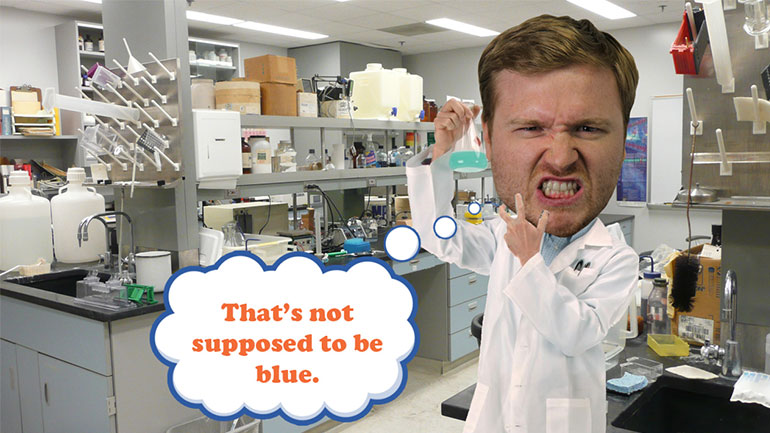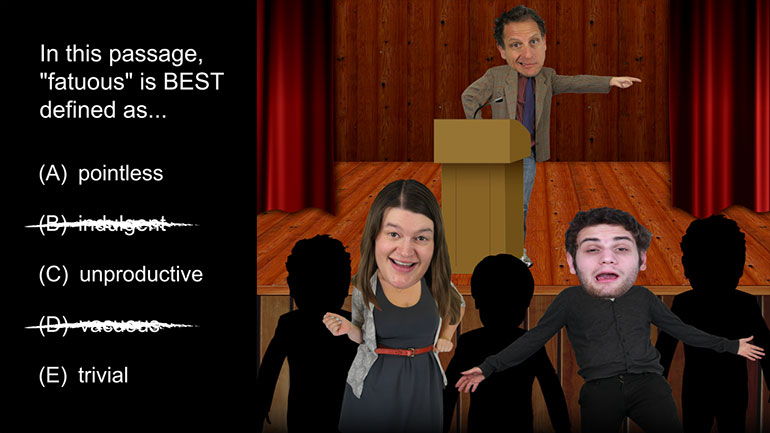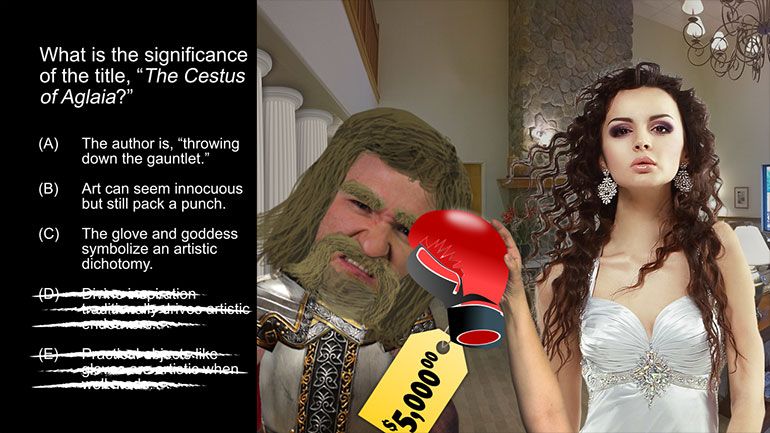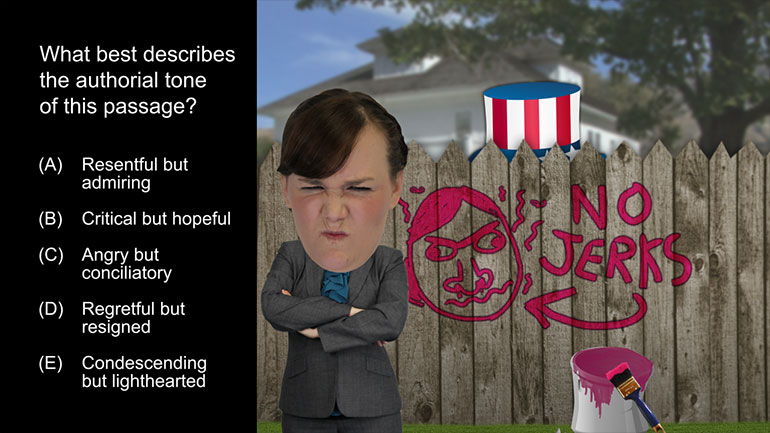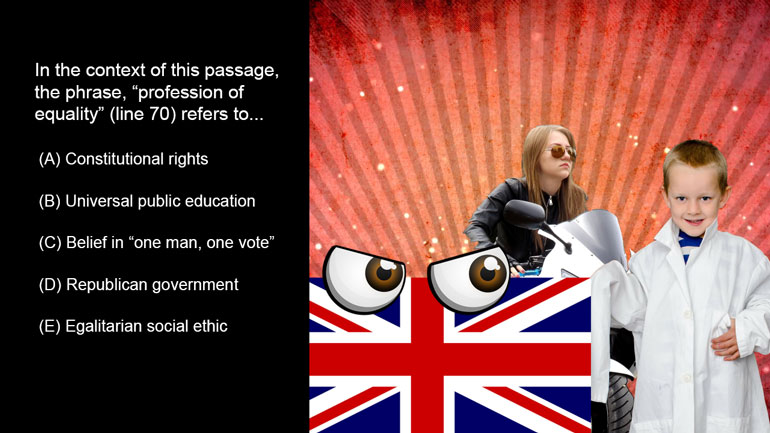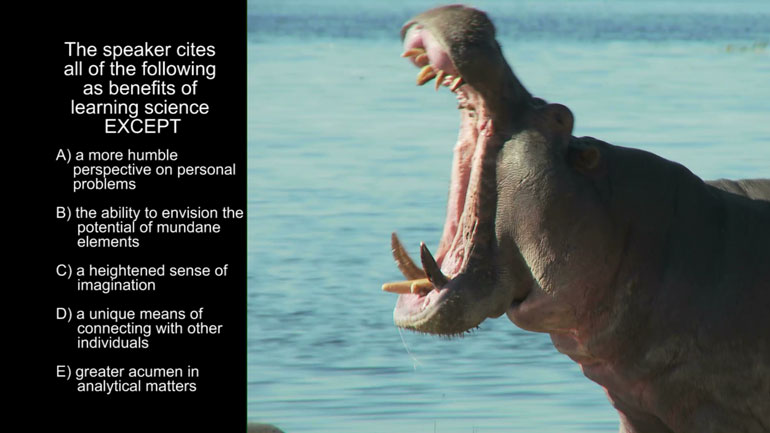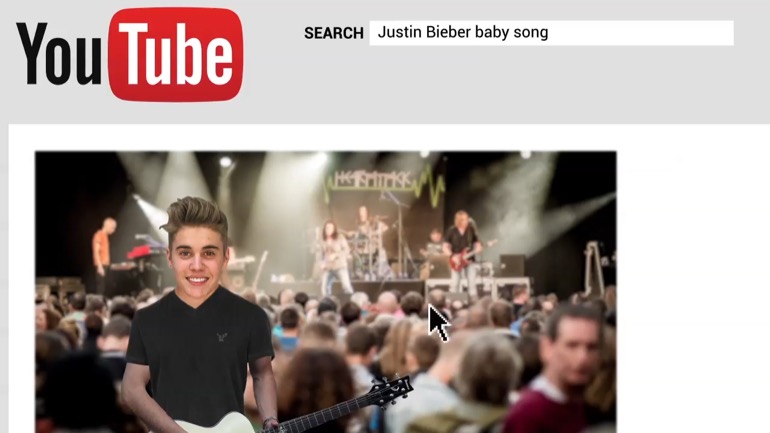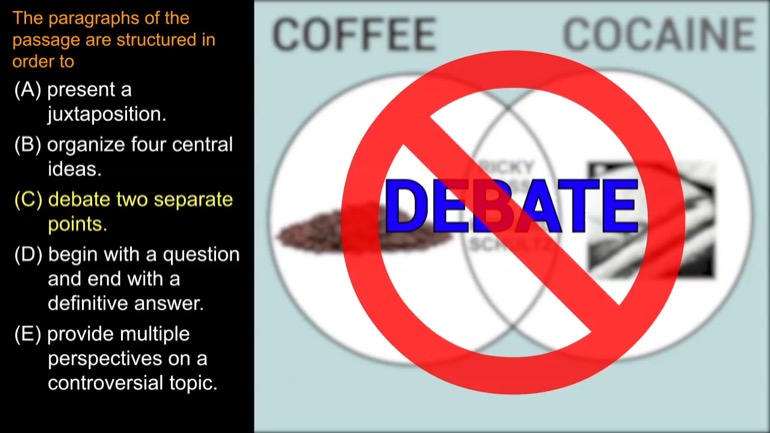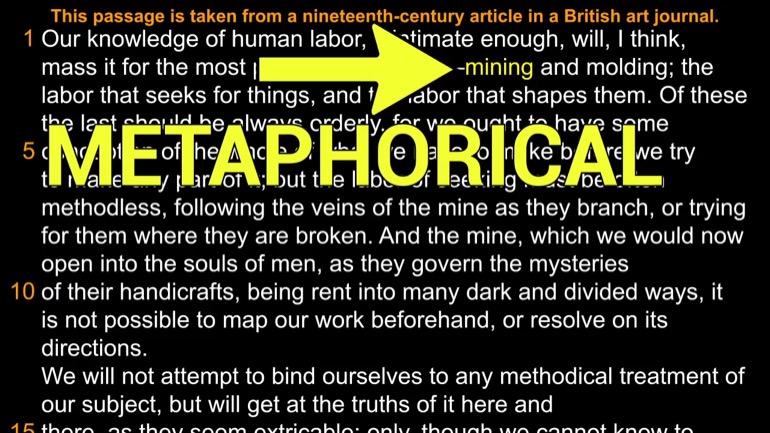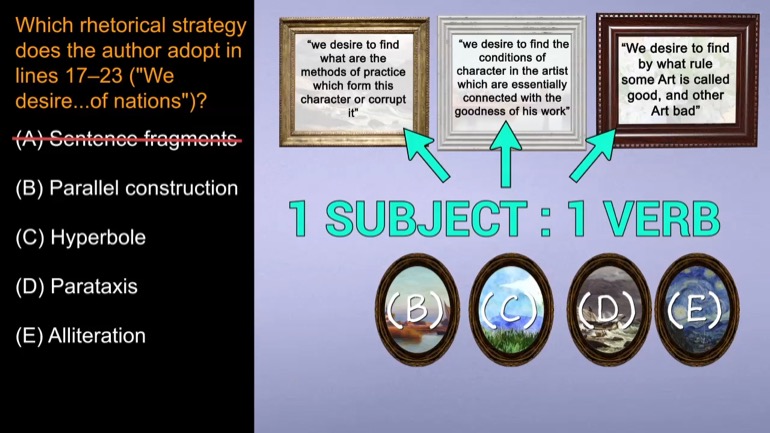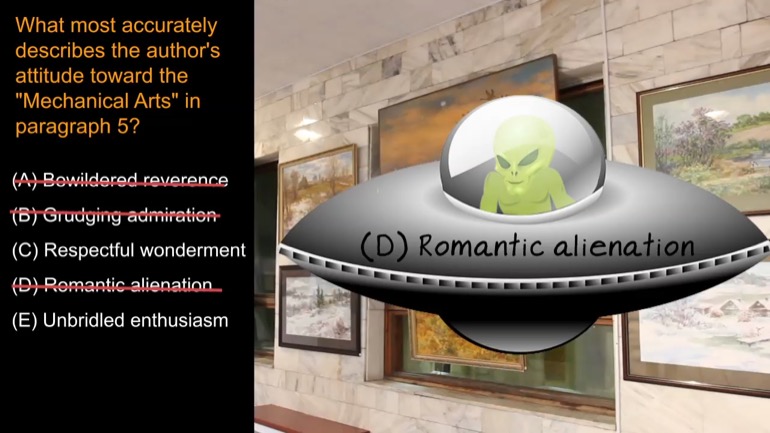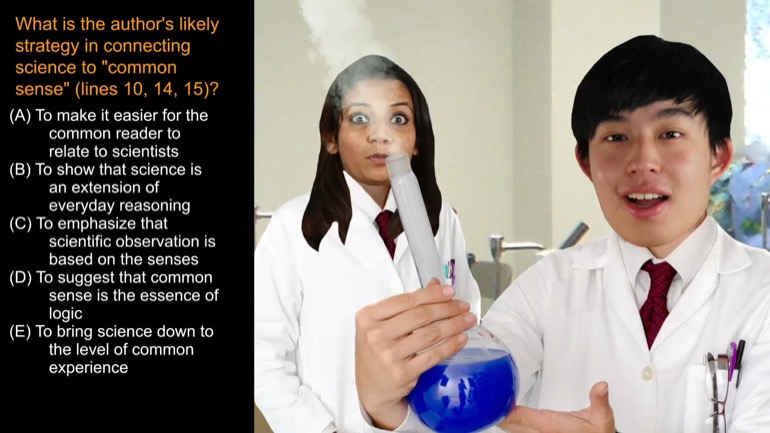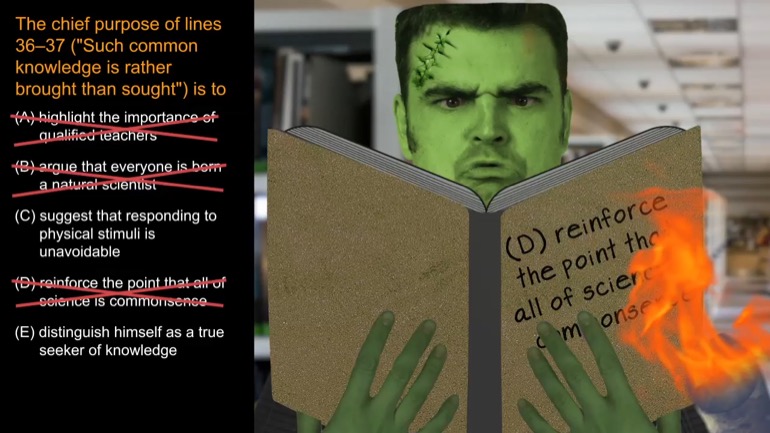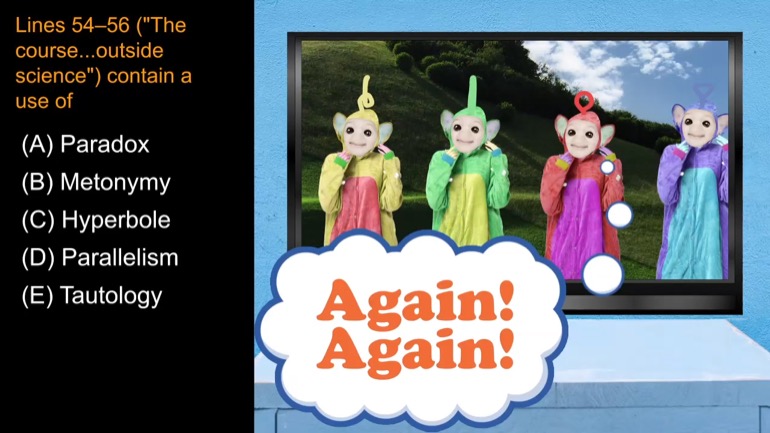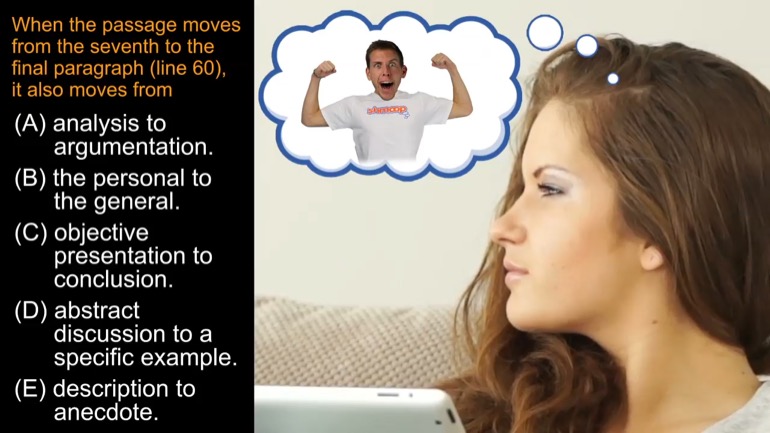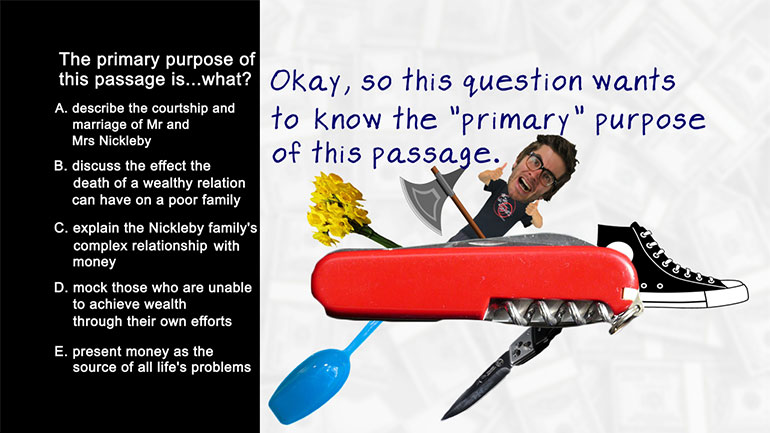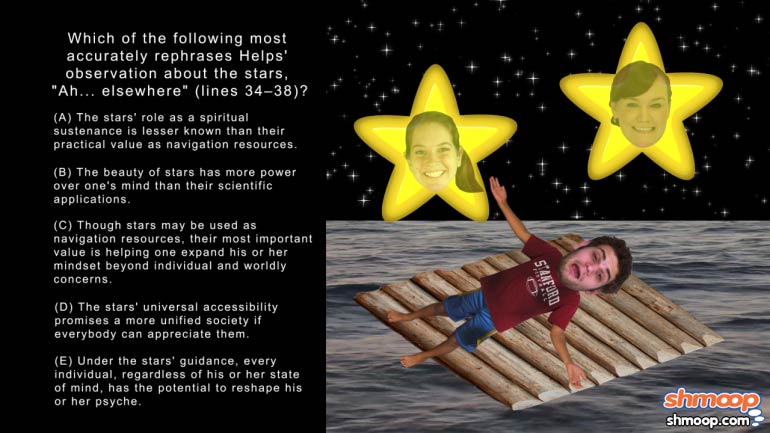ShmoopTube
Where Monty Python meets your 10th grade teacher.
Search Thousands of Shmoop Videos
AP English Language and Composition Videos 152 videos
Which answer best describes the theme of the following passage? And if you say "fission chips," we'll give you half credit. The AP test graders mig...
AP English Language and Composition 3.5 Passage Drill. How is "forcible" being used here?
Take a look at this shmoopy question and see if you can figure out which device the speaker employs the most.
AP English Language and Composition 7.7 Passage Drill 15 Views
Share It!
Description:
AP English Language and Composition 7.7 Passage Drill. The selected line contains which of the following?
Transcript
- 00:00
and here's your shmoop du jour brought to you by natural
- 00:06
history. not to be confused with au natural history. a controversial
- 00:11
approach to teaching students about our past which presupposes that everyone
- 00:14
living prior to the century was totally naked. yeah lawyers had a field day with [American founding fathers shirtless]
- 00:19
that one. all right check out the following passage which we're just going
Full Transcript
- 00:22
to skim because well on our screen is little tiny print. [skim]
- 00:26
[mumbling]
- 00:35
alright we're done. the line the course of nature as It is, as it has been and as
- 00:42
it will be with the object of scientific inquiry whatever lies beyond the bottle
- 00:49
below this is outside science. contains which of the following. all right
- 00:54
[mumbling]
- 00:59
the focus here is not only what the quote says but also how it is said thank you very much.
- 01:03
this is a staple component of rhetoric called a rhetorical or literary device.
- 01:09
rhetoric is persuasive speech or writing and rhetorical devices are techniques [rhetorical device options]
- 01:14
that make what said interesting and convincing. we probably wouldn't consider
- 01:19
this guy's use of repetition and intriguing rhetorical device. on the
- 01:22
other hand this tortured student makes it sound much more convincing. repetition
- 01:26
may be one of the most common rhetorical devices but it's far from being the only
- 01:29
one .first what's this line saying. well essentially the course of nature is was
- 01:34
and always will be the object of scientific inquiry. fancy way of saying a
- 01:38
scientist purpose is to understand and explain nature .the second part means
- 01:41
that which is not observable and therefore cannot be proven is not
- 01:45
scientific. now let's throw our writer thinking cap on and interpret these
- 01:50
techniques. ever heard someone call something a catch-22 ?it means a
- 01:54
situation is a paradox . well the phrase was coined from a book of the same name
- 01:58
catch-22. great book you should read it. the book said during World War two is [teddy bear wonders about the meaning of catch-22.]
- 02:02
about a fighter pilot who wants out of the war. to get out of that combat duty a
- 02:06
soldier must be mentally evaluated and proven insane and therefore unfit to
- 02:09
fight. but there's a catch. if a pilot is sane he must fly well. if he's crazy than
- 02:15
he doesn't have to. so a pilot has to be crazy to fly because it's they're
- 02:19
dangerous so saying he doesn't want to fly means he's sane. he still has to
- 02:24
fly. it's an unending circle an unsolvable contradiction, a catch-22. now
- 02:29
metonymy is a figure of speech. take Julius Caesar please
- 02:34
the name of a person object or idea is replaced by something associated
- 02:38
to it. clearly this request was for attention not to address an ear shortage
- 02:43
problem. Hyperbole is like literally the most extreme literary device ever. this
- 02:49
exaggeration is intended to emphasize a point. not to be taken like literally.
- 02:54
parallel ism is a device that helps clarify a point by giving balance. what [Hyperbole explained]
- 02:59
you see is what you get. consistency is key to proving a point. otology may sound
- 03:04
similar but it's a more exact repetition kind of like saying repeat that again? ok
- 03:09
so which rhetorical device fits the best? well this description of science may
- 03:14
sound like hyperbole but it's no exaggeration. it's simply fact. the decisive
- 03:18
stands uses straightforward language, no figures of speech metonymy or
- 03:23
paradoxes. deciding between you two can be tough because both involve repetition.
- 03:27
remember tautology says the same thing in different ways. meaning d parallelism
- 03:33
is the better choice. there's some echo here but never anything that reiterates [parallelism defined]
- 03:37
exact words or phrases. as it is as it has been as it will be demonstrates
- 03:43
parallelism on two levels .one there's the repetition of as. two is absent and
- 03:49
will be or present past and future is a persuasive way to emphasize always .the
- 03:56
author uses parallelize and a third time writing beyond above or below to
- 03:59
describe what it's outside of science. the one-two-three punch parallelize
- 04:04
makes for perfect persuasion. sorry we spit on you there. [woman hits a man in the jaw with gloved fist]
Related Videos
AP English Language and Composition: Passage Drill Drill 1, Problem 2. What is the speaker's primary purpose in using onomatopoeia in line four?
AP English Literature and Composition 1.1 Passage Drill 7. The primary purpose of this passage is what?
Wishing upon a star may help you pass your AP English Language and Composition test, but answering this question would be a safer bet.
Take a look at this shmoopy question and see if you can figure out which device the speaker employs the most.
Feel like shifting gears and answering a question about shifting tones? We've got you covered. Take a look at this question and see if you can foll...














